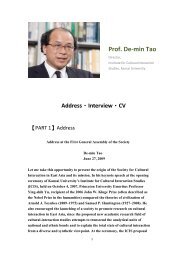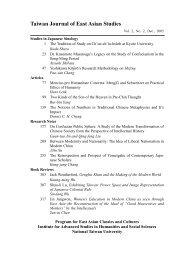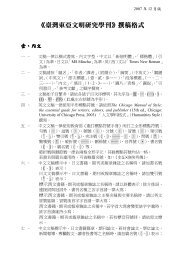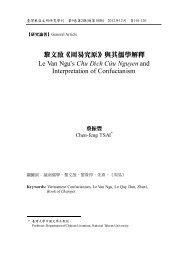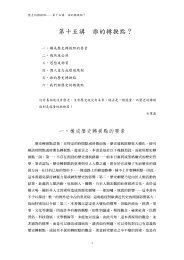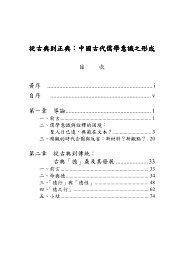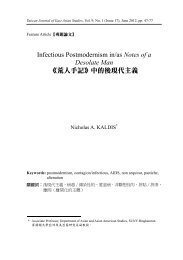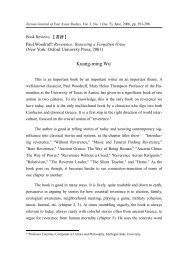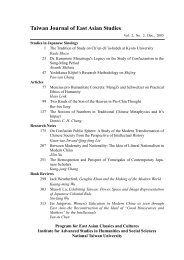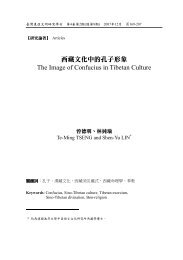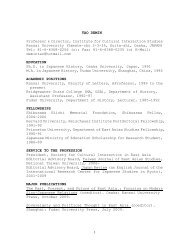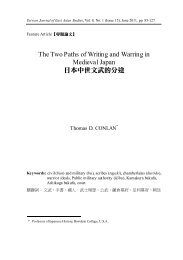臺灣東亞文明研究學刊 - 東亞經典與文化研究計畫 - 國立臺灣大學
臺灣東亞文明研究學刊 - 東亞經典與文化研究計畫 - 國立臺灣大學
臺灣東亞文明研究學刊 - 東亞經典與文化研究計畫 - 國立臺灣大學
Create successful ePaper yourself
Turn your PDF publications into a flip-book with our unique Google optimized e-Paper software.
156 Taiwan Journal of East Asian Studies, Vol. 4, No. 2 (Iss. 8), Dec., 2007<br />
assiduity in commerce." 9 Indeed, England stood more staunchly against<br />
encroachments on liberty than any "uncivilized" nation, for where "luxury nourishes<br />
commerce and industry, and peasants become rich and independent," public liberty<br />
was better protected by "that middling rank of men." 10<br />
Besides, Enlightenment Scots viewed the alignment of commerce and<br />
femininity as one of the four stages in historical progress. Many Scots theorists<br />
argued that human society assumed different forms as modes of subsistence shifted<br />
from hunting and gathering, to pastoral life, farming and then a manufacturing<br />
economy. With the development of the economy, social manners and institutions<br />
were qualitatively transformed, a government was founded and, over time, feuds<br />
and private forces were banned. Such innovations contrasted sharply with feudal<br />
society, in which military values dominated civil refinements.<br />
Some of Hume's acquaintances, among them celebrated writers and<br />
intellectuals, inadvertently campaigned for commercial society because of their<br />
commitment to this model of progress. Among them, Adam Smith was easily the<br />
most broad-ranging and sophisticated. He believed that moral sentiments always<br />
corresponded to social patterns. As society went through the transformation from<br />
feudal or agricultural society to commercial society, its ethical complexion shifted<br />
from noble generosity to a general humanity. When society guaranteed that<br />
individual needs were satisfied through a fair and independent mechanism of<br />
exchange, "The most humane actions require no self-denial, no self-commend, no<br />
great exertion of the sense of propriety." The elaborate moral structure of the past<br />
disappeared and "humane actions" came to amount to "doing what this exquisite<br />
sympathy would of its own accord prompt us to do." For Smith, this moral change<br />
had an obviously gendered quality: "Humanity is the virtue of a woman, generosity<br />
9 David Hume, "Of Refinement in the Arts," in Essays: Moral, Political, and Literary (London :<br />
Oxford University Press, 1963), p. 275.<br />
10 Ibid., p. 277.<br />
viii



